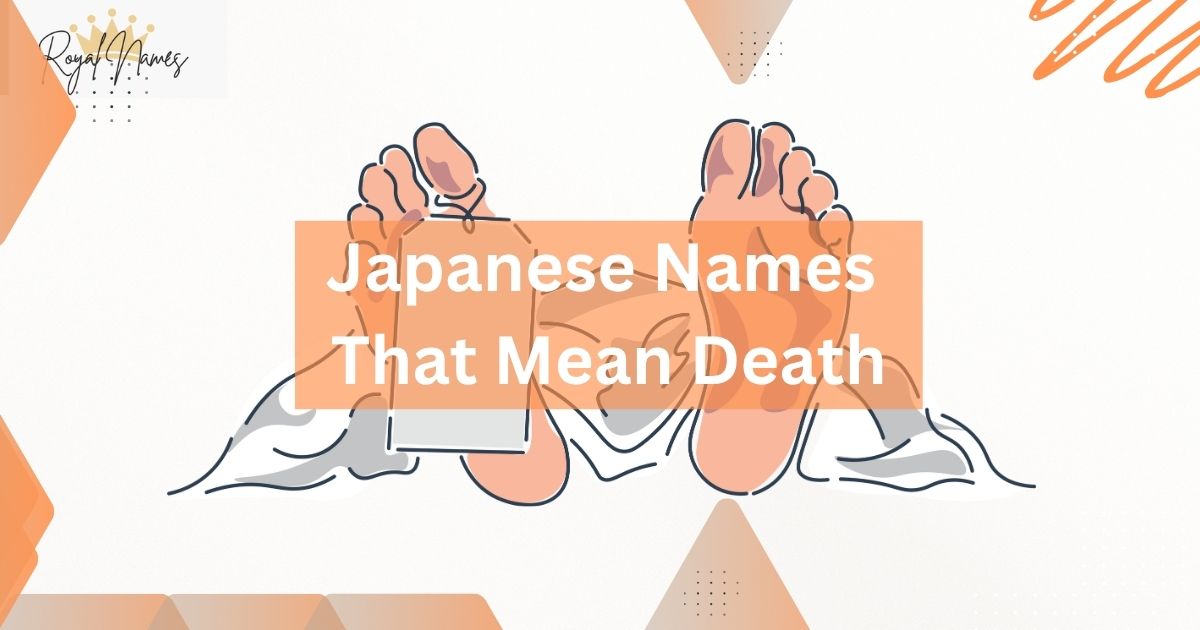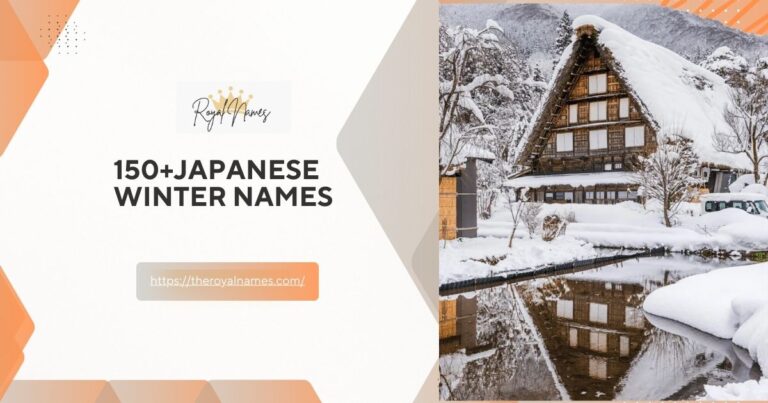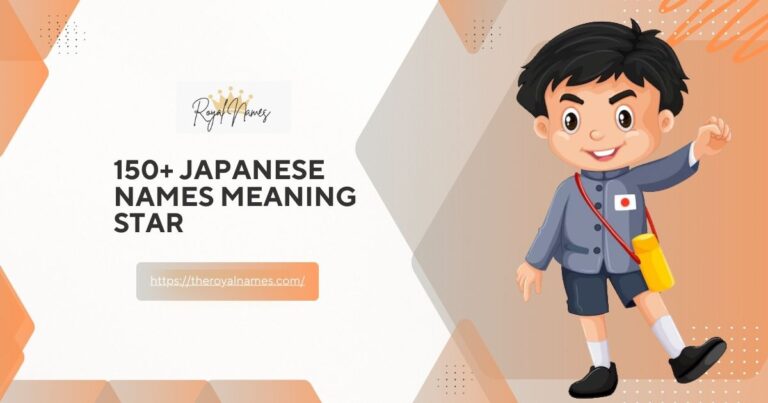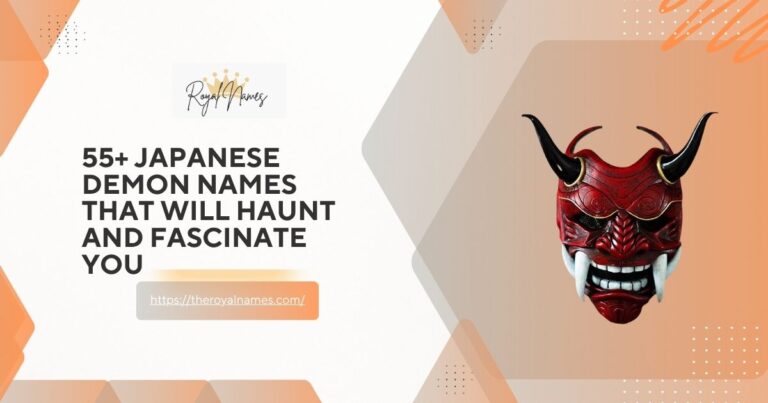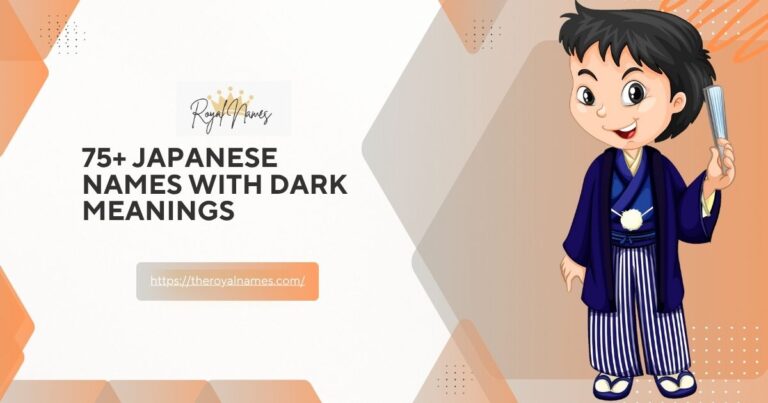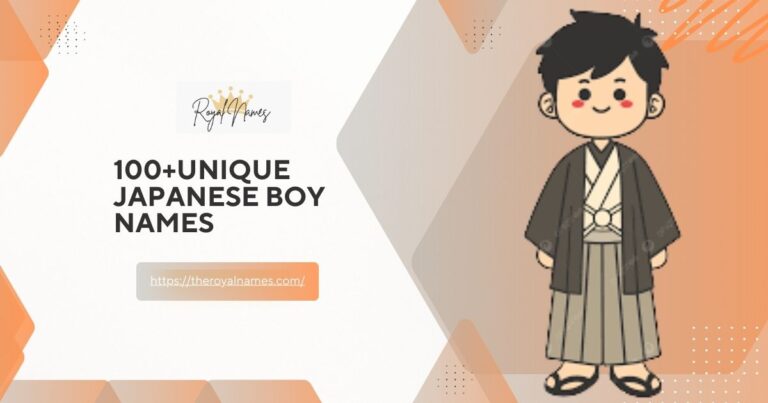50+ Japanese Names That Mean Death
Many people are fascinated by the hidden meanings behind names, but few realize that in Japan, some names are directly associated with death. Japanese Names That Mean Death reveal not only linguistic beauty but also deep-rooted beliefs and taboos within Japanese culture. Read on to uncover which names hold these somber meanings and why they matter in both historical and modern contexts.
Purpose of Choosing Japanese Names That Mean Death
Selecting Japanese Names That Mean Death can be an intentional act filled with symbolism and depth. For writers, artists, and creators, these names can evoke powerful themes of transformation, finality, or the thin veil between worlds in their stories. They may choose such names for characters to hint at tragic destinies, mysterious backgrounds, or to symbolize a connection with the supernatural. This purposeful naming adds a layer of intrigue and emotional resonance that captivates audiences.
Also Read: 140+ Stunning Japanese Names That Start With S
Japanese Names That Mean Death For Males
While overtly naming a child after death is uncommon in Japan due to strong cultural taboos, there are intriguing Japanese names that mean death or hint at its presence for males. Names like “Shinigami” (死神), literally translating to “death god,” evoke the iconic figure of the grim reaper in Japanese folklore. Though rarely used as given names, such terms often appear in manga, anime, and literature, embodying mystery and power rather than sorrow.
- Kaida (海田) – Which means “Little Dragon”
- Mana (愛) – Which means “Everlasting death”
- Oiwa (大岩) – Which means “Angel of Death”
- Sakamoto (坂本) – Which means “Death escaped person”
- Shinigami (死神) – Which means “God of Death”
- Yami (闇) – Which means “Death”
- Akumu (悪夢) – Which means “Nightmare”
- Hizumi (ひずみ) – Which means “Immortal”
- Ame (雨) – Which means “Rain”
- Hana (花) – Which means “Fragile Flowers”
- Senshi (戦士) – Which means “Die in a Battle”
- Kage (かげ) – Which means “Death Shadow”
- Jigoku (地獄) – Which means “Hell”
- Mu (無) – Which means “Nothingness”
- Kuro (黒) – Which means “black”
- Ankoku (暗黒) – Which means “darkness” or “gloom”
- Kuroi (黒い) – Which means “black” or “dark”
- Kuroishi (黒石) – Combining “black” and “stone” Which means “black Stone”
- Kuronushi (黒主) – Which means “Black lord”
- Kyomu (虚無) – Which means “nothingness” or “void” associated with death
- Yamiyo (闇夜) – Which means “Dark Night,” symbolizes death.
- Kuronin (黒人) – Which means “black person” symbolizes death or mourning.
Read More: 150+ Japanese Winter Names: And So The Snow Day Begins
Japanese Names That Mean Death For Females
While Japanese names are often chosen for their beauty and auspicious meanings, there exists a subtle allure in those linked to darker concepts, such as death. Japanese Names That Mean Death for females are rare and carry a sense of mystery, often rooted in mythological or literary traditions. Names like “Shi” (死), directly translating to “death,” are almost never used due to strong cultural taboos, but variations or poetic forms sometimes appear in folklore or artistic works.
- Shinigami Musume (死神娘) – Which means “Death God’s Daughter”
- Shi (死): Which means “Death”
- Mayoi (迷い): Which means “Lost”
- Samsara (輪廻): Which means “Cycle of Rebirth”
- Shinu (死ぬ): Which means “To Die”
- Mujo (無常): Which means “Impermanence”
- Shian (死穢): Which means “Death” or “Impurity”
- Mezame (目覚め): Which means “Awakening” or “Enlightenment”
- Anraku (安楽) – Which means “Peaceful death”
- Yami no Tenshi (闇の天使) – Which means “Angel of Darkness”
- Ikiryo (生霊) – Which means “Departed spirit”
- Shiryō (死霊) – Which means “Spirit of the dead”
- Shibo (死亡) – Which means “Death”
- Shi no kage (死の影) – Which means “Shadow of death”
- Bankoku shinigami (万国死神) – Which means “Death god of all nations”
- Shinidamachu (死んだままちゅ) – Which means “Dead sweetheart”
- Shijin (死人) – Which means “Dead person”
Japanese Last Names That Mean Death
Among Japanese names that mean death, you’ll find a subtle interplay between language, culture, and history. Unlike some cultures that might embrace dark or morbid surnames, Japanese tradition often avoids direct references to death due to its ominous connotations.
- Shirotori (死鳥) – Which means “dead bird” symbolizes the End of life.
- Shikabane (屍) – Which means “corpse,” this surname reflects mortality and finality.
- Yamiuchi (闇打) – Which means “darkness” and “strike”
- Shinigami (死神) – Which means “death god”
- Shishimura (死者村) – Which means “village of the dead”
- Shinda (死んだ) – Which means “dead” in Japanese.
- Kowakuma (恐ろしい死) – Which means “dreadful death”
- Uramushi (裏死) – Which means “reverse” and “death”
- Shinitai (死にたい) – Which means “want to die”
- Kurayami (暗闇) – Which means “Darkness”
- Niekawa – Which means “Sacrifice”
- Fujiwara – Which means “Never Dying”
Conclusion:
Exploring Japanese last names that signify death offers a fascinating glimpse into the country’s linguistic and cultural history. These surnames often reflect ancient beliefs, superstitions, and the deep respect for the cycle of life and death in Japanese society. While some may find such meanings somber, they serve as reminders of the complexities of human experience and the values passed down through generations.
FAQ’s:
Is there any name in Japanese that means death?
In Japanese, there isn’t a common given name that directly means “death.” The word for death in Japanese is “死” (shi), but this character and its pronunciation are generally avoided in names because of its negative connotation.
How are Death-themed names perceived in Japanese culture?
In Japanese culture, names or words directly associated with death — such as “shi” (死, meaning “death”) — are generally considered inauspicious and are typically avoided in personal names, brand names, and important events. This is partly due to cultural beliefs about the power of words and their influence on fate.

